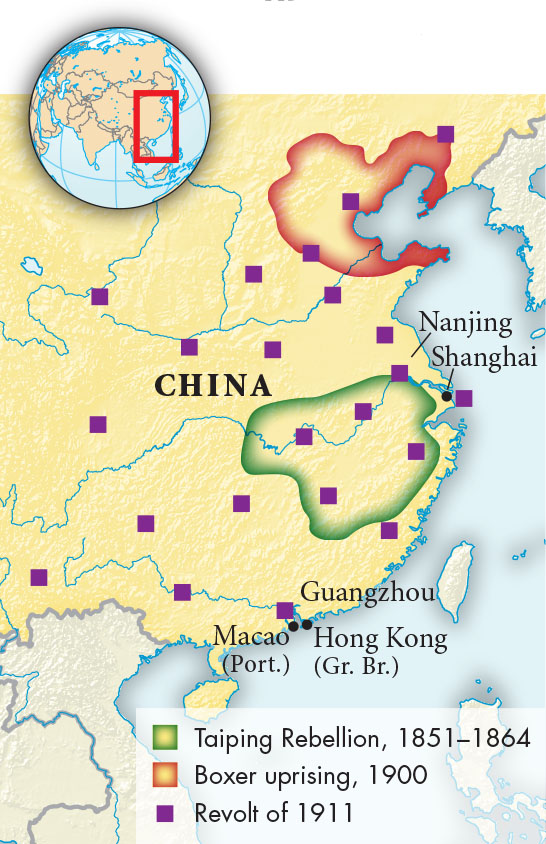A History of World Societies:
Printed Page 797
A History of World Societies Value
Edition: Printed Page 807
Internal Problems
China’s problems in the nineteenth century were not all of foreign origin. By 1850 China, for centuries the world’s most populous country, had more than 400 million people. As the population grew, farm size shrank, forests were put to the plow, and surplus labor suppressed wages. When the best parcels of land were all occupied, conflicts over rights to water and tenancy increased. Hard times also led to increased female infanticide, as families felt that they could not afford to raise more than two or three children and saw sons as necessities. (See “Viewpoints 26.2: Chinese and English Efforts to Reduce Infant Deaths.”) A shortage of marriageable women resulted, reducing the incentive for young men to stay near home and do as their elders told them. Some became bandits, others boatmen, carters, sedan-

These economic and demographic circumstances led to some of the most destructive rebellions in China’s history. The worst was the Taiping Rebellion (1851–
The Taiping (TIGH-
By 1853 the Taiping rebels, as Hong’s followers were known, had moved north and established their capital at the major city of Nanjing, which they held on to for a decade. From this base they set about creating a utopian society based on the equalization of landholdings and the equality of men and women. Christian missionaries quickly concluded that the Christian elements in Taiping doctrines were heretical, and they did not help the rebels. To suppress the Taipings, the Manchus had to turn to Chinese scholar-